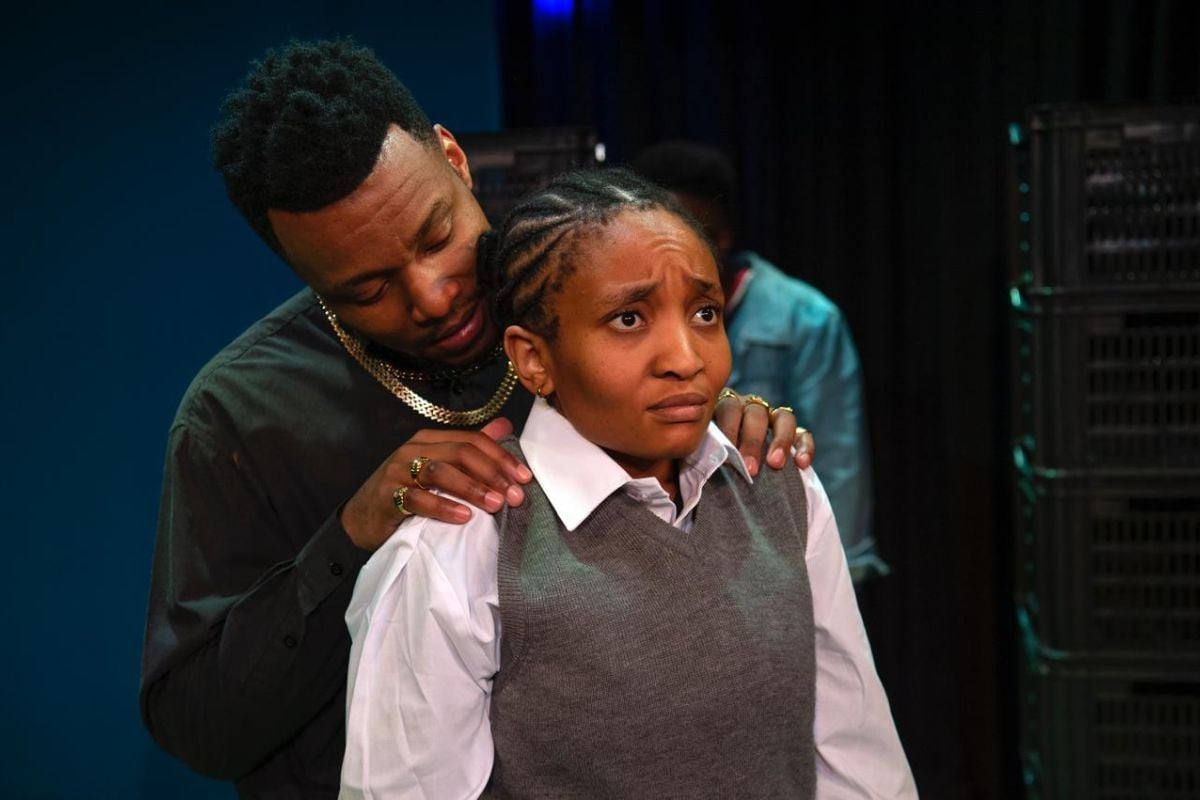The play exposes the tactics traffickers use, while empowering pupils to spot red flags and protect themselves.

Child trafficking is one of the fastest-growing crimes in the world, and South Africa’s youth remain among the most vulnerable.
The story of the six-year-old Joshlin Smith, who went missing more than a year ago after her mother, Racquel “Kelly” Smith, trafficked her, is one of the biggest stories that made headlines in Mzansi and throughout the world.
The story showed how close to home the issue of trafficking is.
To raise awareness and education on the subject, the National Children’s Theatre (NCT) is taking the award-winning play Innocence Lost to schools across Gauteng to teach kids what child trafficking is.
“Child trafficking as a crime against humanity. NCT’s Innocence Lost helps educate against the blight of sex trafficking,” NCT CEO and board chair Moira Katz told The Citizen.
“The programme is an essential part of empowering learners and communities for a better future and a better South Africa. Every child deserves a future.”
Innocence Lost is written by Katz and directed by Thando Msibi.
At its core, the play exposes the tactics traffickers use, while empowering children to spot red flags and protect themselves.
Backed by ACT Africa and the department of social development, the production goes beyond theatre with interactive Q&A sessions that give audiences practical coping tools.
ALSO READ: Mzansi Ballet brings back Elvis Presley to Joburg after a decade
Interactive play
According to Katz, the Q&A serves as a platform to consolidate the didactic aspect of the play.
“In addition, we use it as a yardstick to measure the impact or the extent to which the audience understood the play,” she said.
Katz adds that based on the comments during some of the Q&A sessions, it’s apparent that the South African audience had a superficial understanding of human trafficking.
“This is because the play sets to give a deeper understanding because the children get to witness and experience the emotional value behind the story.”
The play is intended for pupils in intermediate (higher primary) and high school, specifically those aged 11 and above.
Some of the cast include Yanga Klaas, who plays the role of Sello, Mzwandile Mphiti, who portrays the character of Lucky, and Abby Molz, who depicts Lesedi in the play.
“The pre-production workshops that were conducted with the cast thoroughly prepared the cast for the message behind the story,” shared Katz.
The NCT board chair said theatre allows children to work together for a greater goal.
As a cast member, and at NCT theatre workshops for instance, children get to interact with a variety of people – different race groups, wealthy and poor, private school, government school, home-schooled – all working in teams.
“From watching theatre, especially social plays, children learn behaviour modelling. And they see things on stage that help them to socialise, to interact with other people. Theatre also gives them a vision of a better future,” she said.
Accessibility
The NCT has built mentorship partnerships with township schools and theatre groups in rural areas, who are sponsored to travel to Johannesburg and learn first-hand from NCT productions.
Katz says this approach is another aspect of NCT’s strategy of breaking down walls between different parts of society, making theatre more accessible.
“Theatre offers the most incredible opportunities for personal growth,” she said. “And with every child whose life we touch, we create a more passionate, engaged, and skilled young person, who will be an asset in building the future South Africa.”
Innocence Lost transcends traditional theatre boundaries. It is not confined to a specific location. Instead, it integrates into the classroom and transforms the learning environment into a stage where students are forced to engage actively.
“The play’s mobility also allows it to resonate deeply with the audience because it is performed at the core of their everyday experiences,” shared Katz.
“This unique setting eliminates time constraints and make the narrative flow organically with the educational process. By mirroring societal issues and personal struggles, Innocence Lost invites learners to reflect on their own lives, resulting to a deeper understanding of the themes presented.”
Only teachers, administrators and pupils will see the play. “We’d love to produce this play for families, perhaps NCT will do this, if funded, in 2026,” she said.
Innocence Lost is expected to run for three weeks at different schools.
NOW READ: ‘I don’t have any regrets’: Enhle Mbali Mlotshwa apologises but stands by her use of the k-word
Support Local Journalism
Add The Citizen as a Preferred Source on Google and follow us on Google News to see more of our trusted reporting in Google News and Top Stories.






